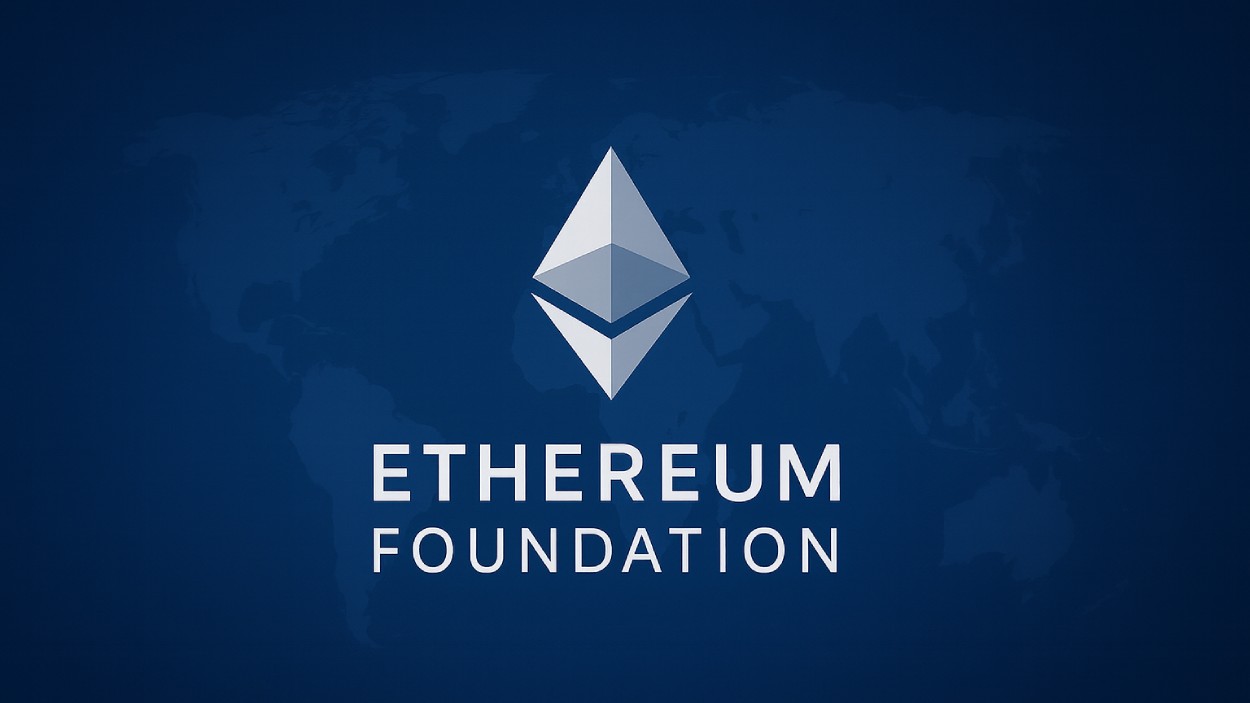Ethereum is turning its sights toward the financial world with a new platform designed to guide institutions into the blockchain ecosystem.
Quick Summary – TLDR:
- Ethereum Foundation launched a dedicated website for institutional adoption of its blockchain.
- The platform highlights stablecoins, tokenized real-world assets, and scalable privacy solutions.
- BlackRock, Visa, and Coinbase already use Ethereum infrastructure, signaling strong industry interest.
- Upcoming upgrades like Fusaka will boost scalability and reduce costs for enterprise applications.
What Happened?
The Ethereum Foundation has launched a new web portal called “Ethereum for Institutions”, aimed at helping traditional financial companies and enterprises integrate into the Ethereum blockchain. This move marks a clear push toward mainstream financial adoption, offering tools, case studies, and technical guidance for onboarding. The initiative is led by the Enterprise Acceleration team, which was formed to assist institutions exploring blockchain technology.
New resource: https://t.co/F0O6v6oNxr
— Ethereum (@ethereum) October 29, 2025
A hub with live ecosystem data, sector overviews, and primary sources for institutions exploring Ethereum. pic.twitter.com/I4qJG90lUb
Ethereum’s Institutional Push Gains Traction
Ethereum has long been the backbone of decentralized finance (DeFi), gaming, and NFTs. Now, the focus is shifting to global finance. With this new portal, the Foundation is showcasing Ethereum as a secure, scalable, and regulatory-friendly infrastructure suitable for everything from tokenized bonds to real-time cross-border payments.
Key highlights of the platform include:
- Over 1.1 million validators securing the Ethereum network.
- More than a decade of uninterrupted uptime.
- Support for over 60% of global stablecoin supply.
- Home to 75% of tokenized real-world assets (RWA).
- Dominant DeFi presence with 67% of global total value locked (TVL).
The Enterprise Acceleration team is tasked with not only educating businesses but also promoting the adoption of advanced Ethereum features such as staking, restaking, and composable financial applications. The portal also emphasizes Ethereum’s neutrality and programmability as a settlement layer for modern finance.
Real-World Assets and Stablecoins Lead the Charge
The Foundation is making it clear that stablecoins and RWAs are at the center of Ethereum’s institutional strategy. Major players like BlackRock, Visa, Coinbase, Securitize, Maple, and Ondo Finance are already demonstrating how blockchain can support high-volume, regulated financial transactions.
These institutions use Ethereum to:
- Tokenize money-market funds and bonds.
- Enable 24/7 programmable settlements.
- Facilitate transparent, low-cost cross-border transactions.
- Provide on-chain compliance tools for capital markets.
The platform outlines specific use cases that include lending, payments, staking, and regulatory compliance through smart contracts.
Scalability and Privacy Take Priority
As Ethereum eyes enterprise-scale adoption, scalability and privacy are top concerns. The upcoming Fusaka upgrade, currently in the final testnet phase, will raise the block gas limit from 45 million to 150 million, tripling transaction throughput.
This upgrade will:
- Improve Layer-2 (L2) integration
- Lower the cost for L2 networks to settle on Ethereum
- Make the network faster and more predictable for enterprise-level transactions
To meet institutional privacy demands, Ethereum continues to invest in cutting-edge technologies:
- Zero-knowledge proofs (ZK)
- Fully homomorphic encryption
- Trusted execution environments
Projects like Chainlink, Aztec, and RAILGUN are already building on these foundations, offering privacy-preserving solutions that align with global regulatory frameworks.
SQ Magazine Takeaway
Honestly, this is a huge moment for Ethereum. We’ve seen it dominate in DeFi and NFTs, but this portal signals a real, deliberate shift to bring Wall Street on-chain. The Ethereum Foundation isn’t just hoping institutions come around, it’s rolling out the red carpet for them. With serious players like BlackRock already on board and privacy and scalability getting major upgrades, this isn’t just about potential. It’s about readiness. Ethereum is positioning itself not just as a blockchain, but as the backbone of tomorrow’s financial infrastructure. And if they pull this off, it changes everything.


































































